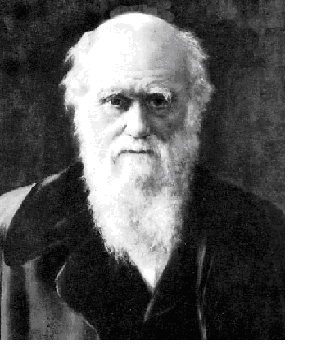Charles Darwin’s School Days
Charles Darwin (1809–1882) was a naturalist who travelled the world for five years in the 1830s, on a British Survey ship, The Beagle. He carefully recorded animal and bird life during the journey, and later used this data to develop his theory of evolution in The Origin of the Species. He is, without doubt, one of the most influential scientists of all time.
Darwin discusses the epistemological frame of reference of his school, compared to the things he really wanted to learn:

In the summer of 1818 I went to Dr. Butler’s great school in Shrewsbury, and remained there for seven years till Midsummer 1825, when I was sixteen years old …
Nothing could have been worse for the development of my mind than Dr. Butler’s school, as it was strictly classical [Ancient Greek and Latin languages], nothing else being taught, except a little ancient geography and history. The school as a means of education to me was simply a blank … Much attention was paid to learning by heart the lessons of the previous day; this I could effect with great facility, learning forty or fifty lines of Virgil or Homer whilst I was in morning chapel; but this exercise was utterly useless, for every verse was forgotten in forty-eight hours …
When I left school … I believe that I was considered by all my masters and by my father as a very ordinary boy, rather below the common standard of intellect. To my deep mortification, my father once said to me, ‘You care for nothing but shooting, dogs, and rat-catching and you will be a disgrace to yourself and all your family.’
Looking back as well as I can at my character during my school life, the only qualities which at this period promised well for the future, were, that I had strong and diversified tastes, much zeal for whatever interested me, and a keen pleasure in understanding any complex subject or thing … I remember … the delight which my uncle gave me … by explaining the principle of … a barometer …
Early in my school-days, a boy had a copy of the Wonders of the World, which I often read, and disputed with the other boys about the veracity of the statements; and I believe that this book first gave me a wish to travel in remote countries, which was ultimately fulfilled in the voyage of the Beagle.
Towards the close of my school life, my brother worked hard at chemistry, and made a fair laboratory with proper apparatus in the tool-house in the garden, and I was allowed to aid him as a servant in most of his experiments … This was the best part of my education at school, for it showed me practically the meaning of experimental science. The fact that we worked at chemistry somehow got known at school, and … I was nick-named ‘Gas’. I was also once publicly rebuked by the head-master, Dr. Butler, for thus wasting my time on such useless subjects; and he called me very unjustly a “poco curante”, and as I did not understand what he meant, it seemed to me a fearful reproach.
Darwin, Charles (ed.). 1892. The Autobiography of Charles Darwin and Selected Letters. New York: D. Appleton and Company. pp. 8–11. || Amazon || WorldCat
